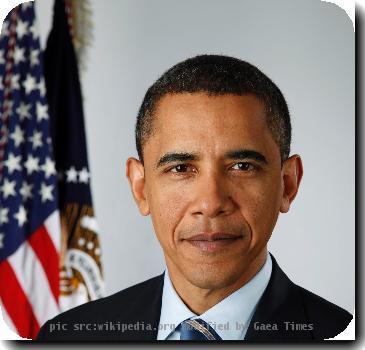US envoy leaves North Korea, calls talks with North Korea ‘very useful’
By Jae-soon Chang, APWednesday, December 9, 2009
US envoy says talks with NKorea ‘very useful’
SEOUL, South Korea — A senior U.S. envoy said Thursday his talks with North Korea were “very useful,” a report said, as he wrapped up a rare trip to the communist nation aimed at prodding it back to international nuclear negotiations.
Envoy Stephen Bosworth made the remark at an airport in Pyongyang as he headed to South Korea after a three-day trip, according to China’s Xinhua news agency. “It was a very useful set of meetings,” he was quoted as saying.
Still, it was unclear if his comment means success in his mission to win North Korea’s commitment to return to international nuclear negotiations. Pyongyang walked away from the talks earlier this year, angered by criticism of its nuclear and missile programs. A nuclear test soon followed.
Pyongyang’s official Korean Central News Agency said in a one-sentence dispatch that Bosworth’s delegation had left.
Bosworth and Washington’s chief nuclear negotiator, Sung Kim, smiled lightly while shaking hands with North Korean officials at the airport before getting on a bus and then onto their plane, footage from broadcaster APTN in North Korea showed.
He landed at a U.S. military base near Seoul, Xinhua and South Korea’s Yonhap news agency said. He was scheduled to brief U.S. and South Korean officials on the visit.
In Washington, State Department spokesman Ian Kelly said he had no information on how the talks went or who the envoy met. “I think that there will be a lot more information flowing once he hits the ground in Seoul,” he said.
Bosworth’s three-day visit to Pyongyang is the first by a U.S. official since President Barack Obama took office.
There had been speculation that North Korea would demand that the U.S. sign a peace treaty with it in return for rejoining the six-party talks, which involve the two Koreas, China, Russia, Japan and the U.S.
The two Koreas have been locked in a truce, without a peace treaty, since the close of the 1950-53 Korean War. Wary of the 28,500 troops Washington has stationed in South Korea, North Korea has long sought a peace treaty with the U.S.
North Korea says the lack of a treaty is evidence that the U.S. bears a “hostile” attitude toward Pyongyang, and that the regime needs to develop atomic bombs to defend itself in case the U.S. attacks.
U.S. officials say a peace treaty was not on the agenda for Bosworth’s trip to North Korea. However, State Department spokesman P.J. Crowley said Tuesday that it “would not surprise us” if the North raised other issues.
“We will make clear to them that should they return to the six-party process and should they reaffirm their commitments” under a 2005 disarmament pact, then an avenue for bilateral talks will be available to them, he said.
This week’s talks come after a year of threatening rhetoric and rising tensions on the Korean peninsula. North Korea expelled U.N. nuclear inspectors, restarted its atomic facilities, test-fired a long-range rocket and ballistic missiles and conducted the nuclear test.
But in recent months, the North has reached out to the U.S. and South Korea in an about-face that analysts and officials say shows it is feeling the pain of U.N. sanctions imposed to punish the North for its nuclear test in May. Since August, the North has freed detained U.S. and South Korean citizens and taken other conciliatory steps, including inviting Bosworth for direct talks.
Bosworth was accompanied by Sung Kim, as well as atomic and Asia specialists from the Defense Department and the White House. After Seoul, the delegation was to visit China, Japan and Russia to brief them on the talks before returning to Washington.
Tags: Asia, Barack Obama, China, District Of Columbia, East Asia, Greater China, International Agreements, Koreas, North America, North Korea, North korean, Pyongyang, Seoul, South Korea, United States

